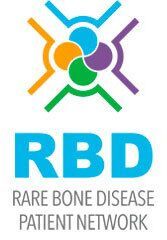
What is protein-losing enteropathy (PLE)?
PLE is a medical condition characterized by the abnormal loss of protein from the digestive tract, specifically the intestines. Normally, the intestines absorb proteins from the food we eat and prevent their loss into the stool. However, in PLE, there is an impairment in the intestines' ability to retain these proteins, leading to their leakage into the digestive tract and subsequent excretion in the stool. This can result in a significant reduction of protein levels in the bloodstream, which is essential for various bodily functions.
Can CLA patients get PLE?
Yes, patients with complex lymphatic anomalies (CLAs) can be at risk of developing protein-losing enteropathy (PLE). It can occur due to the disruption of lymphatic vessels' ability to transport proteins and fluids effectively. The lymphatic system plays a crucial role in maintaining fluid balance and preventing the leakage of proteins from tissues into the interstitial spaces. When the lymphatic system is compromised, as is the case in many complex lymphatic anomalies, there's a higher risk of proteins leaking into the tissues and being lost through the digestive tract.
As a result, patients with CLAs, such as generalized lymphatic anomaly (GLA), Gorham-Stout disease, central conducting lymphatic anomaly (CCLA) and kaposiform lymphangiomatosis , can experience protein-losing enteropathy. The loss of proteins in the digestive tract can lead to complications including edema, hypoalbuminemia, nutritional deficiencies, compromised immune function, and more.
How is PLE treated?
Management of PLE in patients with complex lymphatic anomalies involves addressing both the underlying lymphatic disorder and the protein loss. Treatment strategies may include optimizing nutritional intake, using dietary supplements, managing lymphatic complications, and considering medications or interventions to reduce protein loss.
It's important for individuals with complex lymphatic anomalies to receive comprehensive care from a multidisciplinary team of healthcare professionals, including specialists in pediatric hematology-oncology, vascular anomalies, and gastroenterology, to effectively manage both the lymphatic condition and potential complications like protein-losing enteropathy.






